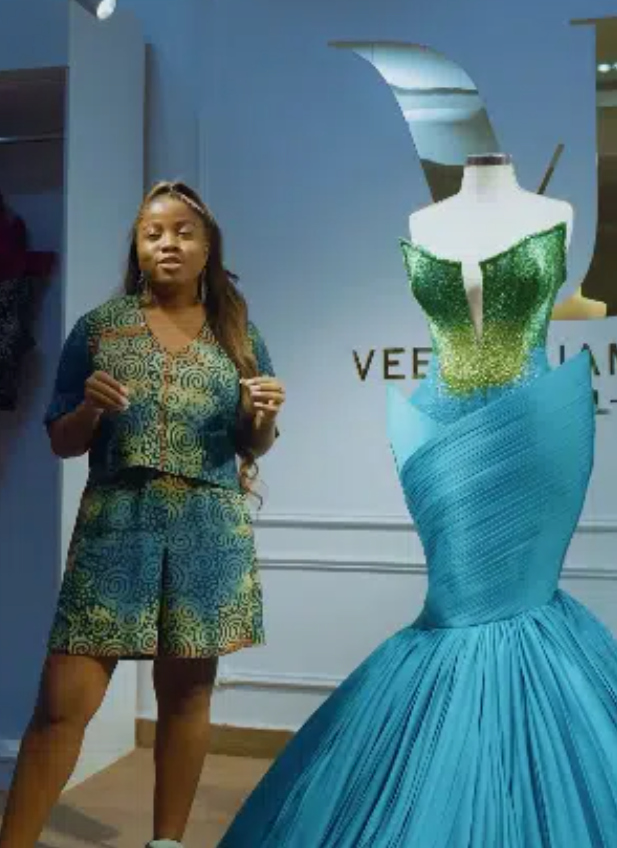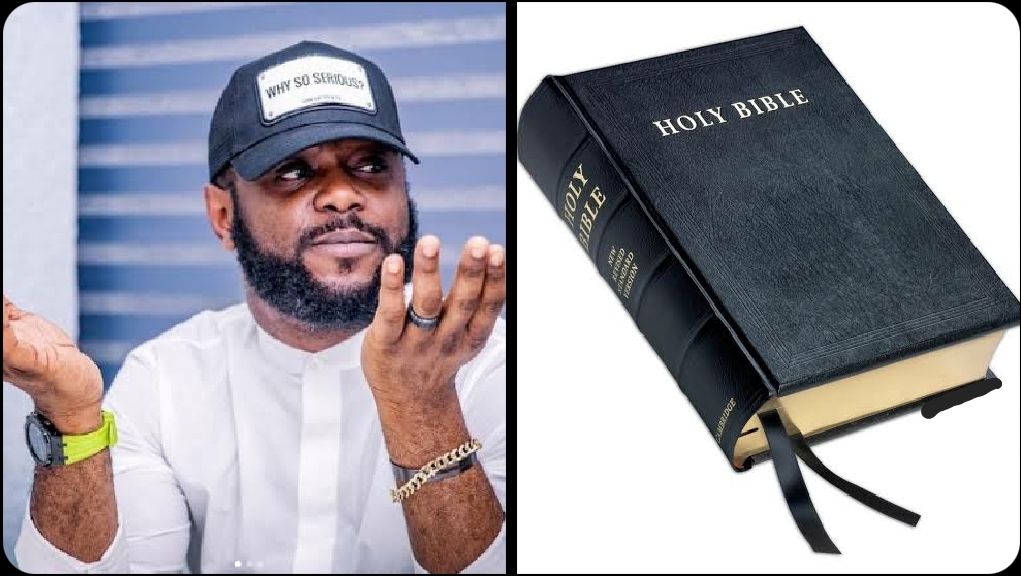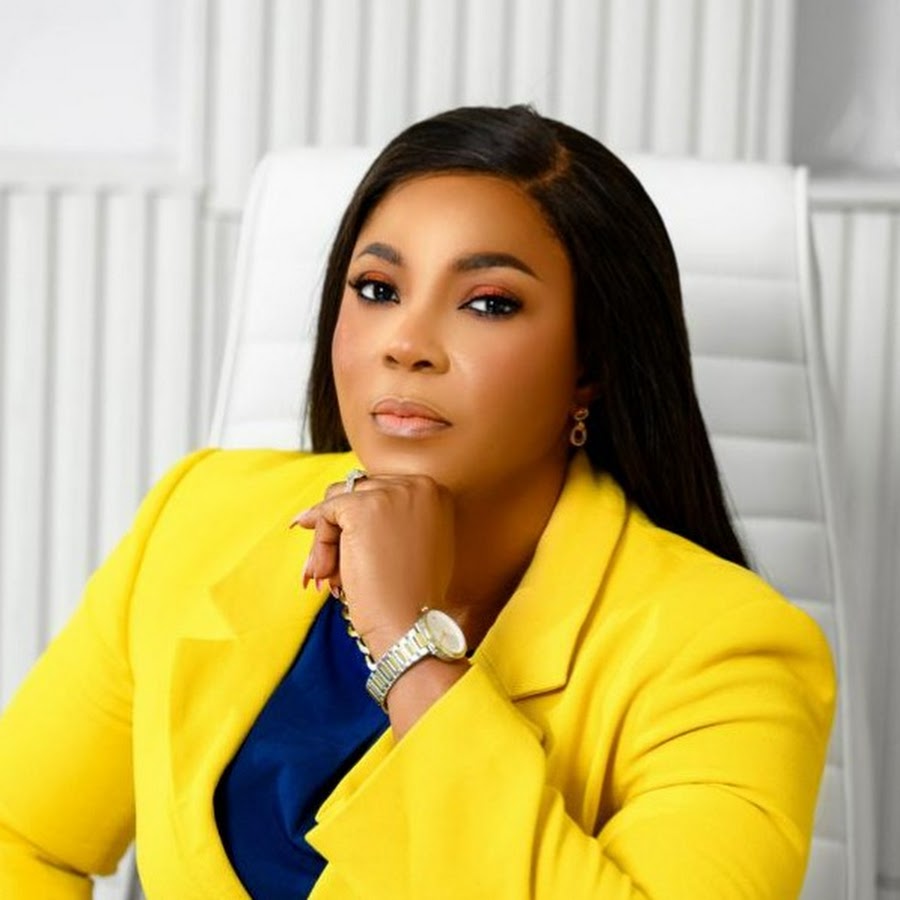
Veekee James Calls Out Senegalese Designer for Design Theft: A Heated Clash in the Fashion World

The world of fashion has always thrived on creativity and innovation, with designers constantly pushing boundaries to create unique, eye-catching pieces. However, the industry was recently shaken when Nigerian fashion designer Veekee James took to social media to publicly accuse a Senegalese designer, King Corset, of stealing her design. The controversy erupted after King Corset released a video documentary showcasing a dress that bore an uncanny resemblance to one of Veekee's signature pieces.
Veekee James did not hold back her feelings as she expressed her outrage on Instagram, condemning what she described as a blatant act of plagiarism. According to her, King Corset not only copied her design but did so without making any modifications or giving her the slightest acknowledgment. In a heated post, Veekee did not mince words, criticizing the designer's lack of originality and effort, which she believes are crucial for success in the fashion industry.
The dress in question, which Veekee had originally crafted, had already gained significant attention and admiration within the fashion community. Veekee was quick to point out that King Corset's version was essentially a carbon copy of her own creation, down to the last detail. She expressed disbelief that someone would replicate her work so thoroughly and then have the audacity to present it as their own in a documentary format.
In her impassioned statement, Veekee expressed her frustration with designers who, in her words, “lack originality and effort” and simply resort to copying the hard work of others. She questioned how such actions could ever lead to growth or success in the competitive fashion world. She drew a stark comparison between copying designs and theft, emphasizing that creative success cannot be achieved by stealing someone else's work. Veekee’s words resonated with many of her followers, who showed their support and condemned design theft in the fashion industry.
Social media users and fashion enthusiasts quickly rallied around Veekee, with many expressing disappointment in the alleged copying and praising her for speaking out. Some designers also weighed in, sharing similar experiences and emphasizing the importance of giving credit where it is due. As the debate intensified, King Corset found himself in the crosshairs of not just Veekee's followers but also the wider fashion community, who were eager to hear his side of the story.
In response to the accusations, King Corset took to his own social media platform, sharing a brief statement that seemed to downplay the controversy. He did not directly address the allegations of copying but rather highlighted his commitment to celebrating African fashion and drawing inspiration from diverse cultures. However, his statement did little to quell the growing outrage among Veekee's supporters.
Critics argue that while inspiration is a common aspect of fashion design, replicating an entire outfit without giving due credit crosses a line. The issue of design theft has been a contentious topic in the fashion industry for years, with countless designers lamenting how their creative ideas are often copied without permission or acknowledgment. This controversy has reignited discussions on how to protect intellectual property within the fashion sector, where ideas can be easily replicated.
Veekee James’ passionate response not only shed light on her personal experience but also sparked a broader conversation about respect, creativity, and professionalism in fashion. She did not shy away from calling out what she perceives as a damaging culture of replication that undermines the hard work and innovation of original designers. Her bold stance was met with widespread approval from those who have witnessed similar issues within the creative industry.
As the debate rages on, it has become clear that Veekee’s outburst was not just about her own experience but a larger issue affecting the fashion community. Many designers feel that their ideas are being exploited, particularly in an era where social media makes it easy for designs to go viral and be reproduced without proper credit. Veekee’s supporters argue that her call-out was necessary to set a precedent for younger designers who may feel discouraged when faced with similar challenges.
The fallout from the accusation has yet to settle, as neither party has taken any formal legal action. Intellectual property rights in fashion remain a gray area, as copyright laws do not always extend to garment designs, making it difficult for designers to protect their work. In cases where legal measures are pursued, proving originality and ownership can be a daunting task, leaving many victims of design theft feeling powerless.
Despite the controversy, Veekee James has maintained a positive outlook, encouraging designers to focus on creativity and originality rather than relying on the efforts of others. Her candid words on social media have inspired some to take a stand against design theft and to advocate for more stringent measures to protect creative works. Whether this particular incident will lead to lasting changes in how designers protect their ideas remains uncertain, but it has undoubtedly stirred a necessary conversation within the fashion world.
King Corset, on the other hand, has remained relatively silent since his initial response, opting not to further engage with the accusations. As fashion lovers and designers alike continue to weigh in, some have called for a more open dialogue between the two designers to resolve the matter amicably. Others believe that public confrontation was necessary to expose a recurring problem that often goes unaddressed.
As the story continues to unfold, one thing is clear: the issue of design theft in fashion is far from being resolved. Veekee James’ passionate stance has given a voice to those who feel their creative efforts have been disrespected, while King Corset's silence leaves questions about how he intends to address the claims. The controversy serves as a reminder of the fine line between inspiration and imitation and the need for respect within the creative community.
Ultimately, this incident highlights the challenges faced by designers who strive to create unique works in an industry that constantly borrows and evolves. Whether or not Veekee’s accusations will lead to any formal actions or resolutions remains to be seen, but her willingness to speak out has undeniably made waves. As designers continue to innovate, the call for better protection of their creative rights grows louder, and the fashion industry must find a way to balance inspiration with integrity.


